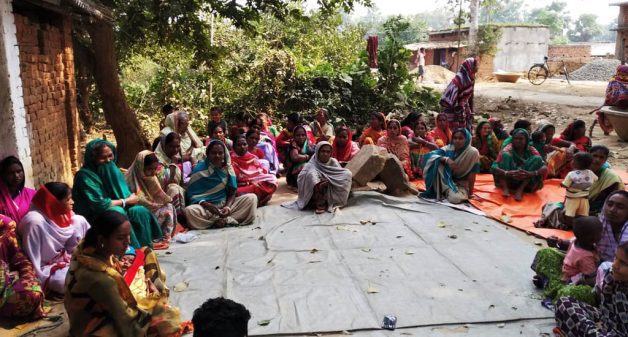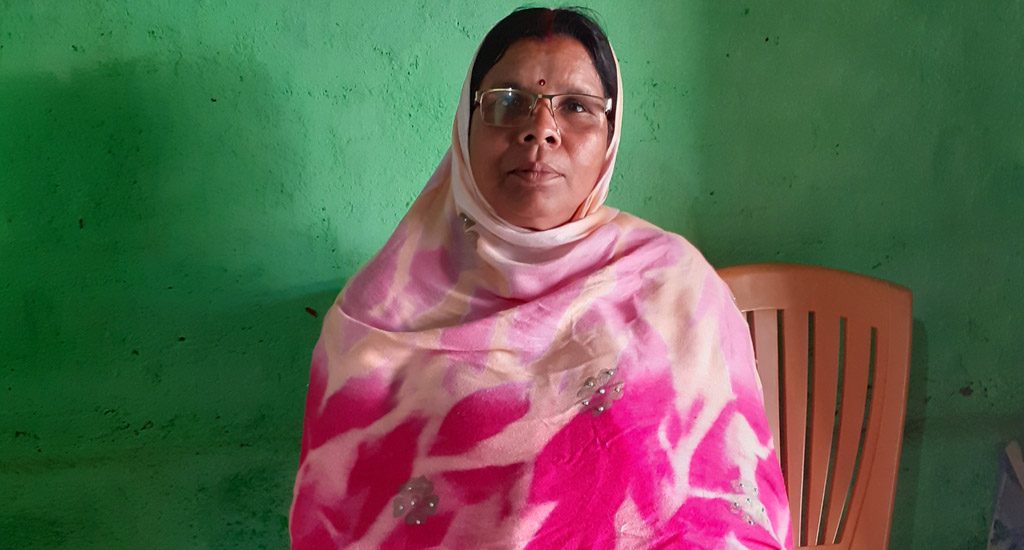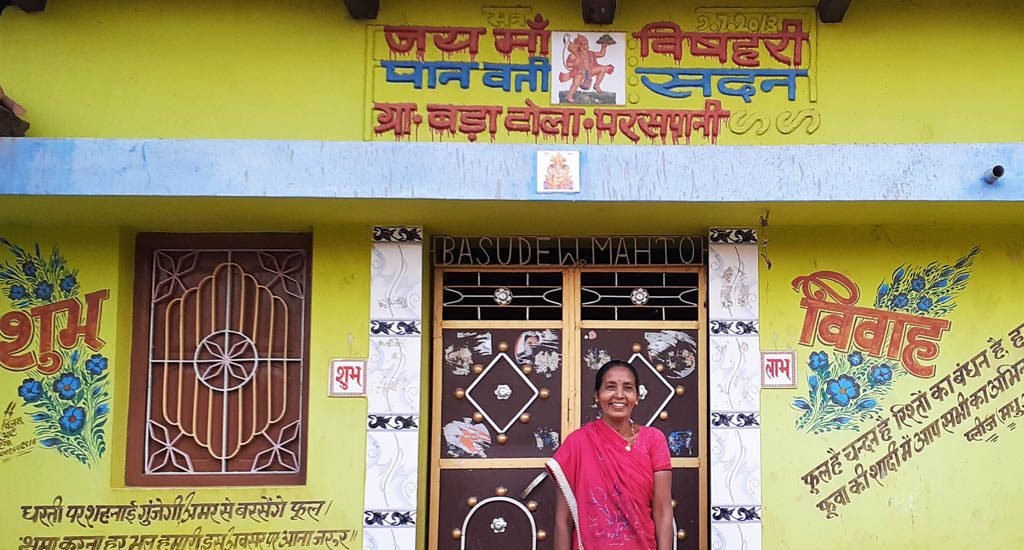
Village Organizations pave way for women’s empowerment
Women who came together for better livelihood, have become socially empowered that they use their collective power to resolve community issues and ensure gender justice

Women who came together for better livelihood, have become socially empowered that they use their collective power to resolve community issues and ensure gender justice
More than 60 enthusiastic women gathered for a meeting of the Brahamchari Gram Sangathan, the village organization (VO) in Rangatar village in Jharkhand. The VO, formed in the year 2014, has 14 self-help groups under it now.
Federations of self-help groups (SHGs) join to form a VO at the village level. The VO operates as a platform to oversee and monitor the activities of SHGs under it. Started to give the women financial security, the SHGs and the VOs have also brought social and political empowerment in the lives of many women.
The transition
The most significant change that the women see in themselves after joining SHGs and VOs is the self-esteem. Women in these villages would not speak up even in their own houses. But now they are vocal about their rights and views, even with strangers. They voice their views in gram sabha meetings, negotiate in markets, transact in banks and even file complaints in police stations.
Non-governmental organizations such as Professional Assistance for Development Action (PRADAN) facilitated formation of SHGs and trained the women in various aspects. While the SHGs were formed to promote livelihood for the women, the trainings covered gender equality and health among other relevant topics.
As the women attended more trainings, they became aware that they were equal to men. With more exposures, they became confident. Depending on several factors, the transition happened in a few months in some villages, while it took a few years in others.
New identity
Sonamani Devi of Daharlangi village is one of the women to have undergone a tremendous transition. Despite hailing from a very marginalized background, she carried out voluntary responsibilities in her SHG and in the Mahatma Gandhi National Rural Employment Guarantee Scheme (MGNREGS) works.
Serving as the president of her SHG and VO, she undertakes works for the betterment of her village. She has got sanctions for MGNREGS works in her village; recently she got 20 acres allocated at the block level for a mango plantation.
Given her proactiveness, she was chosen for an exposure visit to Israel to learn new agriculture techniques. “I never dreamt of going anywhere outside my block, let alone Israel,” said Sonamani Devi. The many awards adorning her house, mark her success.

Similar to Sonamani Devi, many women now have a sense of a new identity. For Beena Devi, the recognition she gets from her association with a VO is what she likes the most. She said she is proud that she is no longer identified by her husband’s name but by her own name.
Many educated women who felt that their education was being wasted in a village, see their association with the VO a silver lining and an opportunity to make use of their skills. The trainings they attend have educated them and instilled in them a sense of self-worth.
Gender justice
Most members of the Paraspani Gram Sangathan and neighboring VOs, who never left their house without any escort or without the permission of their parents-in-law and husband about five years ago, launched a full-blown protest against alcohol and domestic violence last year. The women said that the courage came from their association with the VO, the strength it imparts and the unity it fosters.
“The situation of domestic violence in our area was frequent, especially because the husbands drink,” said Gita Devi, president of the Ghatkurawa Gram Sangathan and also of the Naari Nyay Samiti or women’s court, a body constituted by the women of a VO. “Though the drinking has not changed much, the violence has.”
Gita Devi, who is in her 50s, has faced several instances of domestic violence and abuse in her house. The pain and trauma that she has endured in her life makes her more courageous and compassionate to fight for the justice of women.
When the marital family of Ranjana Devi, a widow who was ill, disowned her, the Naari Samiti of the Ghatkurawa VO fought for her rightful space in the house. The samiti summoned the family members and persuaded them to give her a room in the house, by warning an alternate legal recourse.
The Naari Nyay Samiti, known by other names in different VOs, works on all kinds of injustices against women like domestic violence, gender inequalities related to land, house and marriage. The samiti is seen as an alternate method of dispute settlement, since it tries to solve disputes amicably.
Changed perspectives
Among the many mud huts in Paraspani village, a concrete house with Panwati Sadan written across the facade, stands tall. A house that bears the name of a woman in a village is rare. Panwati Devi, whose name the house bears, said, “Gone is the time when only men used to be the head of the house. I run my house on my own terms and my husband supports me.”

VOs have also helped in changing social attitudes. Many women have now begun to work outside, because of the livelihood opportunities created through VOs. Women have a say in the decision-making process, have access to health care and education, and are financially independent.
Family and neighbors are no longer skeptical about the association of a woman with her SHG and the VO. When Manju Devi of Rangatar village came for an SHG meeting, her mother-in-law who had earlier disapproved of her joining the group, accompanied her.
Now family members encourage the women to participate in the gram sabha meetings. VO members are also ward members in the panchayat, and hence their suggestions are taken well during village level planning meetings.
Resolving community issues
VOs in Jharkhand are in the forefront in resolving community issues. They no longer depend on panchayats. When there was an incident of fire near Kusma village, the VO members collected voluntary contributions of cash and kind and helped the families in crisis, besides setting set an example of solidarity.
While outsiders entered the forests and felled trees when the forest guard was not there, the villagers came together to protest and stop the illegal felling. Members of VOs always join together and try to solve issues in the community.
Beneficiaries of widow pension scheme were not getting the full amount due to them, because a few were forging signatures and withdrawing money from the widows’ accounts. When bank officials did not heed to requests and complaints, the VO members resorted to a protest in front of the bank.
The collective action of the VO members has removed discrimination on the basis of caste, class, gender and politics in many villages. For these reasons, villagers look up to members of VOs, seek their opinions and follow their advice.
Rashmi Komal is a researcher at VikasAnvesh Foundation, Pune. Views are personal.